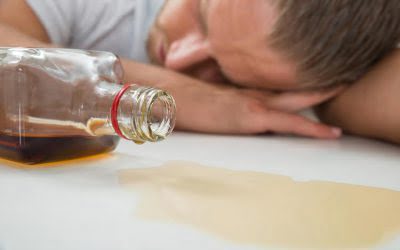Avoiding high-proof liquors and shots lowers the likelihood of rapid intoxication. Sticking to one type of alcoholic beverage may help reduce overconsumption, although research on this is mixed. But the definition of what constitutes a binge-drinking episode may surprise you. Excessive alcohol also affects your actions, which can increase your risk of injuries and death from motor vehicle accidents, drowning, suffocation, and other accidents. About 90 percent of the alcohol in your blood is broken down by the liver.
Share your concerns and ask for their support in your efforts to stop or reduce your drinking. Be mindful of social pressures and learn to say no if you’re uncomfortable with the level of alcohol consumption around you. Binge drinking means consuming a large amount of alcohol in a short time (typically exceeding 4 drinks for women, 5 for men in 2 hours) to get intoxicated.
- Binge drinking behavior and heavy drinking patterns can lead to serious consequences, and continued frequency can lead to the development of an alcohol use disorder, which can become a life-threatening condition on its own.
- For women, consuming 4 or more drinks, and for men, 5 or more drinks within about 2 hours is considered binge drinking.
- After analyzing alcohol problems at their own schools, officials can use the CollegeAIM ratings to find the best combination of interventions for their students and unique circumstances.
- Engage in hobbies, sports, or social events that promote health and well-being without the need for excessive drinking.
- You need to take action both for yourself and your loved ones who consume alcohol in risky levels.
- In 2023, approximately 10.2% of the population, or 28.9 million people, had an alcohol use disorder.
Long-term Health Impacts
You may also want to discuss your goals to reduce your alcohol use with your friends or family members so they can support and encourage you, as well as hold you accountable. Once alcohol consumption crosses the binge threshold — four drinks or more for women, five or more for men — both drunkenness increases and does the risk of acute health toxicity. Higher levels of alcohol depress the brainstem, which controls breathing as well as affecting heart rate and body temperature. The effects of binge drinking can vary depending on individual factors such as overall health, frequency, and duration of binge drinking heroin addiction episodes, and other lifestyle choices. These risk factors do not guarantee that an individual will engage in binge drinking, and many people with these risk factors do not develop problematic drinking behaviors. However, being aware of these factors can help identify individuals who may be more vulnerable and inform preventive measures and interventions.
- Pregnant women who binge drink can affect their child’s physical and cognitive development.
- The test is free, confidential, and no personal information is needed to receive the result.
- It’s not uncommon for people to get defensive when others point out their unhealthy drinking habits.
- You may begin to binge drink more often, the days you abstain between sessions becoming fewer.
- His dedication to patient well-being and contributions to research make him a standout authority in mental health and recovery.
Does Rehab4Addiction help binge drinking patients?
Binge drinking can lead to several co-occurring mental health conditions. It’s crucial to understand how these conditions, such as depression and post-traumatic stress disorder (PTSD), are interrelated with alcohol misuse. If binge drinking develops into alcohol dependence, quitting can be a difficult and painful process due to withdrawal symptoms.

Alcohol Overdose and College Students
Drinking markedly increases the risk of injury as motor coordination is diminished and risk taking behavior increases. Yet beyond injury, long-term, repeated binge drinking adversely affects nearly every major organ system. In the liver, it can cause fatty liver (steatosis), inflammation (alcoholic hepatitis), and permanent scarring (cirrhosis). The pancreas may also become inflamed, leading to painful and dangerous pancreatitis. Binge drinking is linked to elevated blood pressure, arrhythmias, stroke and sudden cardiac death.
Whether through moderation or abstinence, reducing binge drinking is a step toward better long-term health. binge drinking effects With three to four drinks, alcohol’s effects become more pronounced as most surpass a BAC of 0.08%, the legal limit for driving. Motor skills have declined further, reaction times have slowed and decision-making has deteriorated. However, in some people anxiety, sadness or irritability may be increased. From celebrity tequila brands to viral TikTok “drunk girl” videos, social media glamorizes binge drinking as fun and carefree.
Set a maximum amount of alcohol and don’t exceed It
Either way, people who binge drink are more likely to suffer from cognitive issues as they age. Pregnant women who engage in heavy alcohol use in the first-trimester risk damaging the development of their baby’s face and brain. ‘Lightweights’ may be quicker to slur their words, fall over and be forgetful, but this does not mean that they are less affected by binge drinking than someone who appears to be sober.
The Immediate Risks of Binge Drinking
Be honest with yourself about whether binge drinking is a concern for you. Educate yourself about the potential risks and consequences of binge drinking. Understand how it can impact your physical and mental health, relationships, and overall well-being. People may abuse alcohol for various reasons, including a genetic predisposition for addiction, peer pressure, or to self-medicate pain or emotional discomfort. While many believe that alcohol abuse is not as serious as other forms of substance abuse, binge drinking and heavy drinking can cause severe and life-threatening harm.
While you can’t force a loved one to abandon their binge drinking habits, voicing your concerns and offering support in the right way may help motivate them to change their ways. You might also worry about whether alcohol is causing permanent damage to your brain or heart health. If your excessive alcohol use is a recurring issue, you might admonish yourself for your poor self-control or even develop a sense of self-loathing. Fatty liver disease, alcoholic hepatitis, fibrosis and cirrhosis are all caused by repetitive bouts of excessive drinking. Chronic binge drinking can stretch the heart muscle and lead to an irregular heart rate, strokes and high blood pressure. So while naltrexone may be employed during treatment, it’s important to consult with a healthcare provider and/or addiction specialist to determine the best form of treatment for your unique needs.
Although binge drinking is a concern among all age groups, there are important trends in the following groups. Visit Alcohol Facts and Statistics on Alcohol Use in the United States for more detailed information about the prevalence of binge drinking. Binge drinking can affect your life in many ways including negative effects on personal relationships, livelihood, and legal consequences. Valley Spring Recovery Center offers comprehensive addiction and mental health treatment services.

For Students
If you drink more alcohol than what your liver can process, your blood alcohol content (BAC) will increase. Most American adults drink alcohol at least occasionally, but about 1 in 4 knock back several drinks in a short period of time at least once a year. About 1 in 6 American adults say they regularly binge drink, sometimes several times a month. If you or a loved one are struggling with the consequences of binge drinking alcohol, it may be time to seek help. Binge drinking behavior and heavy drinking patterns can lead to serious consequences, and continued frequency can lead to the development of an alcohol use disorder, which can become a life-threatening condition on its own. While frequent binge drinking does not mean a person has an alcohol use disorder, exhibiting many of these signs could indicate a heightened risk.
Whether it’s the immediate consequences of overconsumption or the more insidious long-term risks, this habit can significantly affect your health and well-being. At luxury rehab centers like Sana at Stowe in Vermont, the focus is not only on helping individuals detox but also on fostering long-term recovery through alcohol rehab and comprehensive, holistic care. The brain changes that put the adolescent at risk for ongoing alcohol abuse can cascade into chronic health problems later in life and an average of 30 lost years of life per problem drinker. Adolescents who struggle with problem drinking need support from parents or guardians, their school, and other community networks to get treatment as soon as possible. In the brain, repeated exposure to high alcohol levels can cause structural shrinkage in young adult brains, especially in areas responsible for memory and decision-making. Binge drinking is also linked with higher rates of anxiety, depression, and suicidal behavior.
- Насколько самоуверенность воздействует на понимание побед - December 4, 2025
- GameArt Casinos 2025 ⭐ Best GameArt casino Dr Bet Login login Gambling enterprise Bonuses & The Harbors - December 4, 2025
- Online Casino’s in Nederland: Regelgeving en Praktische Vereisten - December 4, 2025
